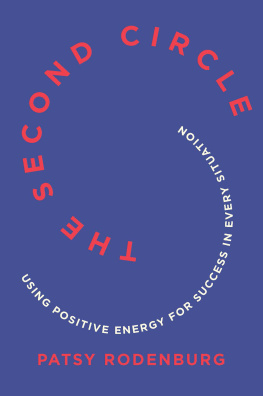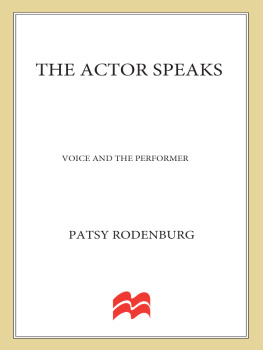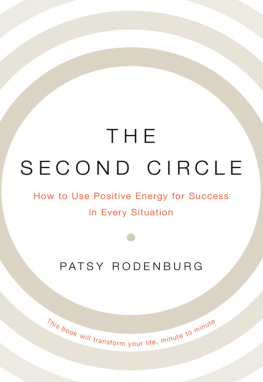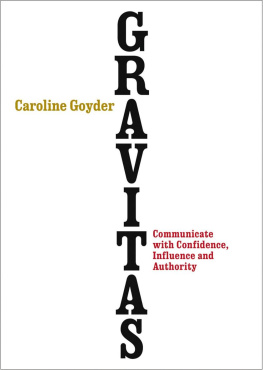With thanks to Kate Adams, Louise Bakker, Arabella Stein, Debbie Hatfield, Antonia Franceschi and to all the students at the Guidhall School of Music and Drama.
Introduction
On the morning of Wednesday 5th November, the day after the US presidential election, I arrived to teach at the Guildhall School of Music and Drama, elated, even though I had had no sleep. Inevitably my students wanted to talk about the momentous event that they were witnessing and as I am a teacher of voice and communications, we naturally discussed Barack Obamas speech and presentation.
I was with first-year students aged between 18 and 24 and as they spoke I was struck by in hindsight a blatantly obvious epiphany: the majority of these students had never heard a politician speak like Barack Obama. That is, a world leader speaking with clarity, dignity, focus, passion, humanity and authenticity. A man prepared to care through his presentation and content. A man desiring that his words inspire and awaken.
My young students hadnt heard Mandela they have lived through politicians using spin to hide the truth, and smirking and mocking as a presentation style. They have only experienced the casual, cynical approach to communication; the approach that assumes the audience is not equal to the presenter and can be duped.
On that morning, I had real hope that these students had begun to understand the power of words and the power of presence.
This book will put power and presence into your own speech. You will realize that even if you dont perceive yourself as a leader, at the moment you present in any context you are leading and you have to own your power and authority. In classical moral philosophy, power and leadership are rigorously discussed. Quite simply, if you have power you must use it for the general good and use it responsibly. But and heres the paradox you must use it. Most communicators who fail have failed to realize they have power and that power has an impact on all around. It is your role to lead as you communicate and you are going to fail if you dont do it with presence.
It is probably safe to say that by picking up this book you know or believe that your ability to communicate is in some way failing you. You might have a fear or even a terror of speaking in public or an intense dislike of your voice. Perhaps your presentation has been criticized or even mocked, or you simply want to be better. When communication matters you are not as successful as your mind and heart want and know you can be. In other words, you know you are much more interesting than you sound!
I have spent my life working on voice, language and effective delivery. It is my passion and I only started this journey because of my own fears and struggles to communicate. I understand the pain and distress concerned with any inability you experience when your communication fails and I honour the struggle you face as you attempt to improve your voice and your verbal impact on the world.
However, you will soon realize that I intend to be direct and truthful as this book is for those of you who really want to work on and improve your presentation.
The work will demand practice and honesty, and in order to be a great communicator and presenter you will have to release your power, attention and presence. You have to accept certain non-negotiable truths.
Any communication that matters to you or the listener can never be casual or unprepared.
Communication is personal human to human and is at its best when there is humanity within the speaker.
Good communication, like achievement in any field, takes hard work, diligence and preparation.
Long before you breathe in and open your mouth to speak, even as you walk into a room or stand up to begin speaking, the people around you have made decisions as to whether they will lend you their ears or give you their respect.
How comfortable do you look?
No-one can listen to a boring voice for more than a couple of minutes.
No-one wants to or enjoys listening to a pushed or aggressive voice.
The extreme effort required in listening to a mumbled voice frustrates, and although the overbeautiful voice can enthral, that thrill is pointless if we hear the beauty of the voice rather than the words being spoken.
No-one trusts arrogance, spin or apology.
No-one wants to be addressed by a fidget or by someone so physically stiff that they cant move. Both positions exasperate us.
No-one likes people who want to be liked, and those speakers who have a fuck you attitude dont amuse us as they alienate goodwill.
If you rush, we cant keep up; if you speak too slowly, we take offence as we think you think we are stupid.
We dont want falseness false power, charm or enthusiasm.
We want the truth and we want your full attention.
We want you to take full responsibility for what you say and stand by it.
We want you present. Presence in a speaker is the beginning and ending of all good and powerful communication.
This presence, which is a real and tangible energy, transforms all around it. When you communicate with your full presence your words will live, inspire, provoke and prevail.
Part 1
Power
Presentation
Preparation
The Three Circles of Energy in Power Presentation
The key to Power Presentation is human energy and how to maximize and use your present energy. I devised the Three Circles of Energy over thirty years ago as a clear description of how human energy works.











